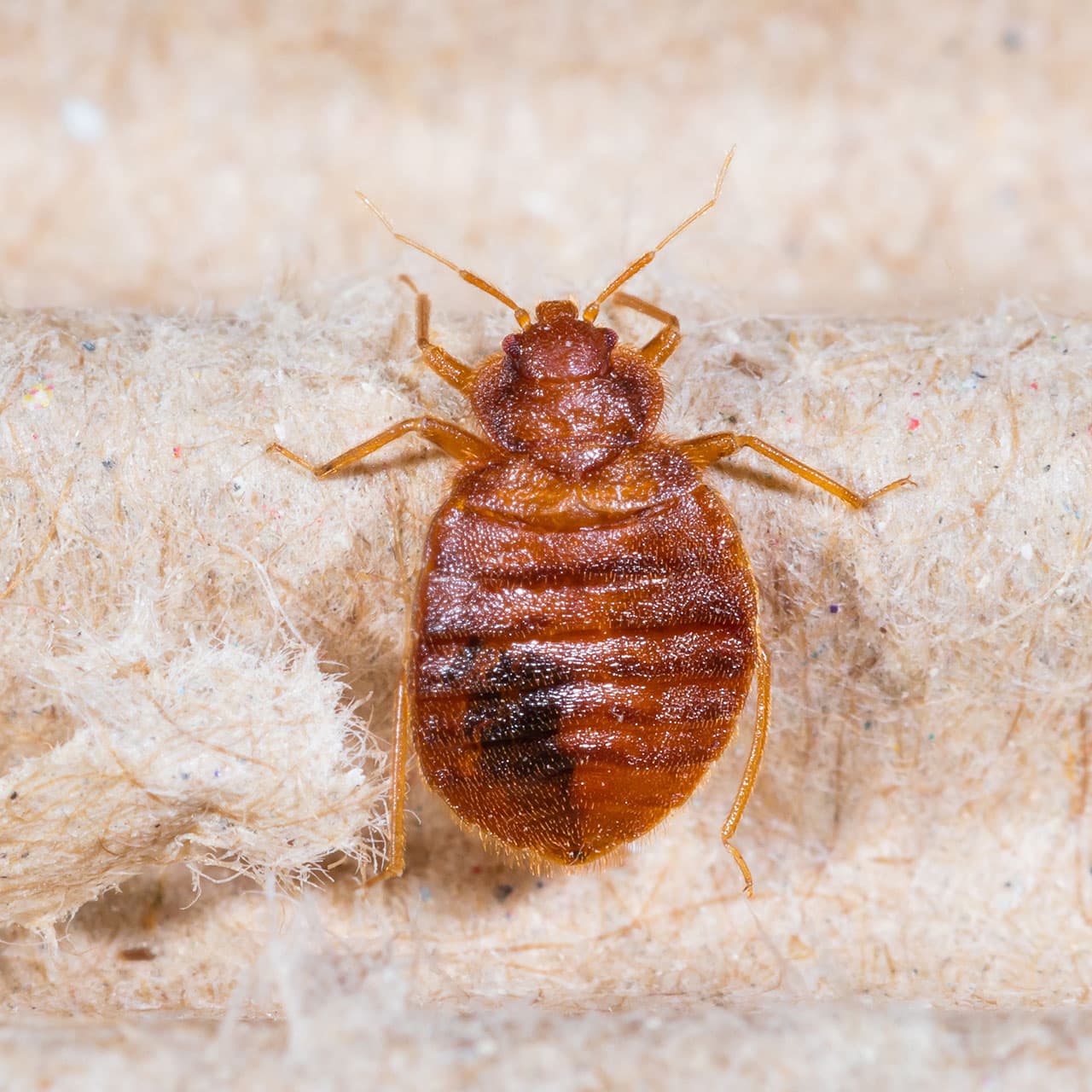
HOME|BED BUG FAQ|PICTURESSHOP NOW
Bud Bug Stuff is reader supported. We strive to provide great info and only the highest quality bed bug products.
When you buy through links on our site, we may earn a small affiliate commission.
Bud Bug Stuff is reader supported.
We strive to provide great info and only
the highest quality bed bug products.
When you buy through links on our site,
we may earn a small affiliate commission.
HOME
BED BUG FAQ
PICTURES
SHOP NOW

Do you need to get rid of bed bugs? There are Bed Bugs just about everywhere across the globe, including throughout America, so effective bed bug control is a must. In fact, it doesn’t really matter where you travel in the good ol US of A – Arizona, New York City, Los Angeles California, Miami Fl, Texas, or ??? - you can easily bring Bed Bugs back home or to your work place with you.
Whether you're staying in a high end 5-Star Resort or your grandma's house, bed bugs could be lurking just out of site. Homeless shelters, hospitals, restaurants, airports and just about anywhere else people frequent are possible points of contact. They are famous for hitching a ride in your clothing, purse, hair or luggage and travel well. If you travel often, preventative bed bug control measures probably make a lot of sense.
Bed Bug Control Starts With Prevention
Another way folks can bring bed bugs home with them is by simply picking them up at a friend's or relative's home when visiting them. Or they can bring them with them when visiting you. It's more common than you may think.
We knew of a family in the Phoenix, Arizona area who had a recurring bed bug problem in one of their daughter's room. Every couple of months they would have to have an exterminator out for a bed bug control treatment in the one bedroom. They finally figured out that she was picking them up at a friends home when visiting there.
We think of hotels and motels as possible sources of bud bug problems, but it can be closer to home than you think. Regardless what city you're in or have visited - Baltimore MD, Denver CO, Atlanta GA, etc. - or where you got them you definitely need to get rid of bed bugs. Bed bug control becomes extremely difficult if they are constantly being reintroduced.
Stop Bed Bugs In Their Tracks!
BEST Bed Bug Sprays
Stop bed bugs
In Their Tracks!
BEST
Bed Bug Sprays!
Keep bed bugs OUT of your bed
and protect your investment
Keep bed bugs
OUT
of your bed
and protect
your investment
BEST BED BUG MATTRESS COVERS
BEST
BED BUG
MATTRESS COVERS
How To Prevent Bed Bugs
Bed Bugs hide in clothing and bedding. If you have any reservations at all as far as where you've been, who you've been around, or who comes to your home or business, there are some very good preventative measures you may want to think about incorporating into your bed overall bug control program..
We highly recommend bed bug mattress covers - really good, professional grade mattress protectors - as your first line of long term defense. Not only do really high quality bed bug mattress covers keep them from getting into (or out of!) your mattress, but they eliminate the need to chemically treat your bed, which is a big deal as far as we're concerned.
Quality, long lasting mattress protectors will not only give you peace of mind but will also protect your investment for years to come. Great bed bug mattress covers are really ground zero when it comes to effective bed bug control.
We've seen far too many folks have to throw away their beds because of severe bed bug infestations, and that's just too expensive in our book. These covers are also available for pillows and box springs, which is awesome. Really good mattress protectors are a great value when it comes to long term bed bug control.
NOTE: we don't recommend the cheaper, over the counter covers as they don't always work as well and definitely don't last very long. A good mattress cover will actually work to help prevent bed bugs and will last for years.
Bed Bug traps, also known as detection or monitoring devices, are also a great tool to help you stay on top of any potential bed bug problem. Simply place them under your bed and in other possible problem areas and get a heads up should there be bed bugs in that area so you can implement additional bed bug control measures.
Besides under beds, you may also want to use them under furniture, in automobiles or RV's and any place you may be storing stuff for friends or family. Since bed bugs don't usually go away on their own, we highly recommend these tools for bed bug prevention and monitoring. The best bed bug control truly is prevention!
Info About Bed Bug Bites
- Red, itchy, puffy, swollen spots on your body. Bed Bugs often work - and leave bite marks - in a straight line, cluster or zigzag pattern. Bed bug bites usually do not hurt like an ant bite or spider bite would. But if you're wondering: do bed bugs bites itch? - the answer is almost always yes.
- Bed Bug bites usually appear where your skin was exposed during the night as you slept, like on your arms, shoulders and neck. Bed Bugs don't usually feed inside of your clothing or under your bedding as they want to be ready for a quick escape to safety. However, nothing's written in stone and bites can pop up anywhere on your body.
More Bed Bug Info:
- Bed Bugs often leave spots of blood or dark spots on the bedding.
- Like most critters, they will leave feces and bed bug eggs just about anywhere they've been. Bed Bugs also leave shed skin, known as castings, behind as well. The more of this evidence you find, the more activity there has been in that location.
- Most insects utilize pheromones to communicate among themselves. With Bed Bugs, this can cause a musty, unpleasant odor after a period of time.
- Check out our gallery of Bed Bug Bites Images for more help.
Trap Bed Bugs Before They Bite!
BEST Bed Bug Traps
Trap bed bugs
BEFORE
They Bite!
BEST
Bed Bug
Traps
Do you need to get rid of bed bugs? There are Bed Bugs just about everywhere across the globe, including throughout America, so effective bed bug control is a must. In fact, it doesn’t really matter where you travel in the good ol US of A – Arizona, New York City, Los Angeles California, Miami Fl, Texas, or ??? - you can easily bring Bed Bugs back home or to your work place with you.
Whether you're staying in a high end 5-Star Resort or your grandma's house, bed bugs could be lurking just out of site. Homeless shelters, hospitals, restaurants, airports and just about anywhere else people frequent are possible points of contact. They are famous for hitching a ride in your clothing, purse, hair or luggage and travel well. If you travel often, preventative bed bug control measures probably make a lot of sense.
Bed Bug Control Starts With Prevention
Another way folks can bring bed bugs home with them is by simply picking them up at a friend's or relative's home when visiting them. Or they can bring them with them when visiting you. It's more common than you may think.
We knew of a family in the Phoenix, Arizona area who had a recurring bed bug problem in one of their daughter's room. Every couple of months they would have to have an exterminator out for a bed bug control treatment in the one bedroom. They finally figured out that she was picking them up at a friends home when visiting there.
We think of hotels and motels as possible sources of bud bug problems, but it can be closer to home than you think. Regardless what city you're in or have visited - Baltimore MD, Denver CO, Atlanta GA, etc. - or where you got them you definitely need to get rid of bed bugs. Bed bug control becomes extremely difficult if they are constantly being reintroduced.
Stop Bed Bugs In Their Tracks!
BEST Bed Bug Sprays
Stop bed bugs
In Their Tracks!
BEST
Bed Bug Sprays!
How To Prevent Bed Bugs
Bed Bugs hide in clothing and bedding. If you have any reservations at all as far as where you've been, who you've been around, or who comes to your home or business, there are some very good preventative measures you may want to think about incorporating into your bed overall bug control program..
We highly recommend bed bug mattress covers - really good, professional grade mattress protectors - as your first line of long term defense. Not only do really high quality bed bug mattress covers keep them from getting into (or out of!) your mattress, but they eliminate the need to chemically treat your bed, which is a big deal as far as we're concerned.
Quality, long lasting mattress protectors will not only give you peace of mind but will also protect your investment for years to come. Great bed bug mattress covers are really ground zero when it comes to effective bed bug control.
We've seen far too many folks have to throw away their beds because of severe bed bug infestations, and that's just too expensive in our book. These covers are also available for pillows and box springs, which is awesome. Really good mattress protectors are a great value when it comes to long term bed bug control.
NOTE: we don't recommend the cheaper, over the counter covers as they don't always work as well and definitely don't last very long. A good mattress cover will actually work to help prevent bed bugs and will last for years.
Bed Bug traps, also known as detection or monitoring devices, are also a great tool to help you stay on top of any potential bed bug problem. Simply place them under your bed and in other possible problem areas and get a heads up should there be bed bugs in that area so you can implement additional bed bug control measures.
Besides under beds, you may also want to use them under furniture, in automobiles or RV's and any place you may be storing stuff for friends or family. Since bed bugs don't usually go away on their own, we highly recommend these tools for bed bug prevention and monitoring. The best bed bug control truly is prevention!
Keep bed bugs OUT of your bed
and protect your investment
Keep bed bugs
OUT
of your bed
and protect
your investment
BEST BED BUG MATTRESS COVERS
BEST
BED BUG
MATTRESS COVERS
Info About Bed Bug Bites
- Red, itchy, puffy, swollen spots on your body. Bed Bugs often work - and leave bite marks - in a straight line, cluster or zigzag pattern. Bed bug bites usually do not hurt like an ant bite or spider bite would. But if you're wondering: do bed bugs bites itch? - the answer is almost always yes.
- Bed Bug bites usually appear where your skin was exposed during the night as you slept, like on your arms, shoulders and neck. Bed Bugs don't usually feed inside of your clothing or under your bedding as they want to be ready for a quick escape to safety. However, nothing's written in stone and bites can pop up anywhere on your body.
More Bed Bug Info:
- Bed Bugs often leave spots of blood or dark spots on the bedding.
- Like most critters, they will leave feces and bed bug eggs just about anywhere they've been. Bed Bugs also leave shed skin, known as castings, behind as well. The more of this evidence you find, the more activity there has been in that location.
- Most insects utilize pheromones to communicate among themselves. With Bed Bugs, this can cause a musty, unpleasant odor after a period of time.
- Check out our gallery of Bed Bug Bites Images for more help.
Trap Bed Bugs Before They Bite!
BEST Bed Bug Traps
Trap bed bugs
BEFORE
They Bite!
BEST
Bed Bug
Traps
DIY Bed Bug
Control Products


HOME|BED BUG FAQ|PICTURESSHOP NOW
Bud Bug Stuff is reader supported. We strive to provide great info and only the highest quality bed bug products.
When you buy through links on our site, we may earn a small affiliate commission.
Please Share This Page:
Bud Bug Stuff is reader supported.
We strive to provide great info and only
the highest quality bed bug products.
When you buy through links on our site,
we may earn a small affiliate commission.


